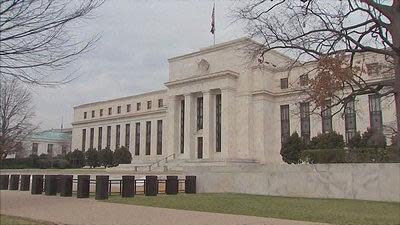Janet Yellen's talk about a 'high-pressure economy' may just be a bargaining chip

As if investors don't already have enough to think about when it comes to the Fed, Chair Janet Yellen has sent minds reeling again with a relatively new addition to the monetary policy lexicon.
In an otherwise-academic speech delivered this month at the Boston Fed, Yellen pondered the concept of running a "high-pressure economy." It's a nice-sounding phrase at a time when the economy has been a far cry from energetic.
But for some, notably including several Fed officials , the concept carries darker undertones. They worry that the central bank may be on a course that could make the next downturn worse, wherein it allows the economy to heat up too much, then has to rush to correct course. Others, though, think there's more at play — and it could be monetary politics.
"I think it's risky," said Jim Paulsen, chief investment strategist at Wells Capital Management. "One of the things that scares me in general about where we're at with interest rates is it seems everyone has accepted the lower-for-longer (position), including the Federal Reserve . When there's that big a consensus on anything, it always frightens me."
Some background is important here:
The Fed follows a dual mandate, meaning that it seeks to maintain a level of full employment — a 4.8 percent unemployment rate is the currently implied goal — and price stability, which translates into inflation of around 2 percent. The economy has made considerable progress and in fact stands just a blip away from the employment goal, but has remained considerably short of the inflation goal.
In a "high-pressure" economy, the jobless rate would be allowed to drop below what is considered full employment, and inflation would be permitted to run hotter than its goal, before the Fed would start tightening policy and raising interest rates.
While that in itself doesn't sound terribly revolutionary, the Fed is at a unique moment in monetary policy history. The bank has hiked rates only once since June 2006 — a quarter-point move in December 2015, from which there has been no follow-through. The Fed has returned to pause mode even though officials had previously indicated that four hikes were in store for 2016.
Markets now are tilted heavily toward expectations for another rate in December. So for Yellen to introduce a clearly dovish signal ahead of that is bound to create confusion.
"You have to wonder. Despite the fact that the economic data has been decidedly mixed, she has been telegraphing a rate hike," said Quincy Krosby, strategist at Prudential Financial. "You have to ask whether she wants a rate hike for a different reason."
Indeed, Krosby's not the only one questioning whether all the talk about a "high-pressure economy" isn't just a little policy chess for Yellen.
The Fed chair is known for a dovish slant on rates but is confronting a growing minority bloc on the Federal Open Market Committee that is keen to resume the rate-hiking cycle. That bloc includes Boston Fed President Eric Rosengren, long a member of the dovish side of the table. It was at least a little telling that Yellen made the "high-pressure economy" speech on Rosengren's turf. Allowing a rate hike or two in the short term, then, could be a way for Yellen to achieve longer-run goals of an even more modest tightening cycle than the hawks envision.
"I've heard similar thought, that maybe this is all posturing by Yellen and a few others that don't want to be forced to move too fast or too aggressively to tighten," Paulsen said. That school of thought holds that "she's not really paving the way to run it hotter than normal, she's trying to put a bargaining chip on the table to do it in normal fashion."
In any event, the chatter has created some fears about where investing is headed. Fed policy has been at the cornerstone of the bull market that began in March 2009. It's also been a the center of the accompanying economic recovery, lukewarm as it has been.
It also could be the undoing of both.
"The bottom line is that, like a fire hose, a high-pressure economy is hard to control," Nick Colas, chief market strategist at Convergex, said in a client note. "And while it is a historically rare occurrence, a cold dousing for U.S. stocks and bonds may be one of its unintended consequences."

 Yahoo Finance
Yahoo Finance 
